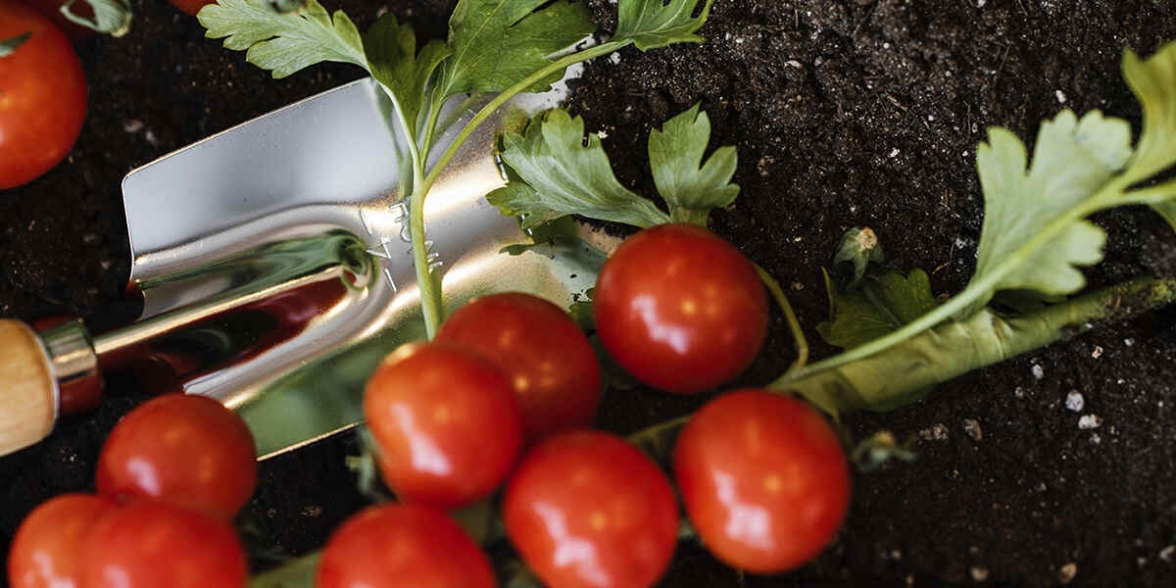How to Add Calcium to Tomato Plants
What do you Mean by Adding Calcium to Tomato Plants?
Adding calcium to tomato plants refers to supplementing the soil with calcium to ensure the plants have sufficient amounts of this essential nutrient for healthy growth. Calcium is crucial for proper cell wall development, disease resistance, and overall plant vigor. Without adequate calcium levels, tomato plants may suffer from blossom end rot, a common disorder that causes dark, sunken spots on the bottom of the fruit.
How to Add Calcium to Tomato Plants?

Image Source: agardenpatch.com
There are several ways to add calcium to tomato plants, including using natural sources like eggshells, bone meal, or limestone, as well as commercial calcium supplements. Here are some methods you can use to increase calcium levels in your tomato plants:
Using Eggshells
One of the easiest ways to add calcium to tomato plants is by using crushed eggshells. Simply save your eggshells, crush them into small pieces, and sprinkle them around the base of the plants. As the eggshells break down, they will release calcium into the soil.
Using Bone Meal
Bone meal is another natural source of calcium that can benefit tomato plants. It is made from finely ground animal bones and is rich in nutrients like calcium and phosphorus. To use bone meal, sprinkle a small amount around the base of the plants and work it into the soil.
Using Limestone
Limestone is a common soil amendment that can help raise calcium levels in the soil. It is best to have your soil tested before adding limestone to determine the proper amount needed. Spread the limestone evenly over the soil and mix it in thoroughly.
Using Commercial Calcium Supplements
If you prefer a more convenient option, there are many commercial calcium supplements available for tomato plants. These products are specifically formulated to provide plants with the right amount of calcium they need for optimal growth and fruit development. Follow the instructions on the product label for best results.
What is Known about Adding Calcium to Tomato Plants?
Adding calcium to tomato plants is a common practice among gardeners to prevent nutrient deficiencies and improve overall plant health. Calcium plays a vital role in cell division, cell elongation, and cell structure, making it essential for plant growth and development. Without enough calcium, tomato plants may experience stunted growth, poor fruit set, and increased susceptibility to diseases.
Solution for Adding Calcium to Tomato Plants
To ensure your tomato plants have adequate levels of calcium, it is important to maintain a balanced soil pH and provide regular applications of calcium-rich amendments. Test your soil regularly to monitor nutrient levels and make adjustments as needed. By following proper planting techniques and providing the necessary nutrients, you can help your tomato plants thrive and produce healthy, delicious fruits.
Information about Adding Calcium to Tomato Plants
Adding calcium to tomato plants is a simple and effective way to promote healthy growth and prevent common problems like blossom end rot. By incorporating calcium-rich amendments into the soil and using commercial supplements when needed, you can provide your plants with the nutrients they need to thrive. Remember to follow recommended guidelines for application rates and frequency to avoid overloading the soil with calcium.
How to Add Calcium to Tomato Plants in a Nutshell
Adding calcium to tomato plants is essential for promoting healthy growth, preventing nutrient deficiencies, and ensuring a bountiful harvest. By using natural sources like eggshells, bone meal, or limestone, as well as commercial calcium supplements, you can provide your plants with the necessary nutrients they need to thrive. Remember to test your soil regularly, monitor plant health, and make adjustments as needed to support optimal growth.
Conclusion
Adding calcium to tomato plants is a simple yet important step in ensuring your plants grow strong and produce abundant fruits. By using natural sources of calcium like eggshells and bone meal, as well as commercial supplements, you can provide your plants with the nutrients they need to thrive. Remember to monitor plant health, test your soil regularly, and make adjustments as needed to support healthy growth.
FAQs about Adding Calcium to Tomato Plants
1. How often should I add calcium to my tomato plants?
It is recommended to add calcium to your tomato plants at the beginning of the growing season and then as needed throughout the growing period. Monitor plant health and soil pH to determine when additional calcium is required.
2. Can I use gypsum as a calcium supplement for tomato plants?
Yes, gypsum is a good source of calcium for tomato plants and can be used to supplement soil with this essential nutrient. Apply gypsum according to the recommended rates for best results.
3. Will adding too much calcium harm my tomato plants?
While calcium is essential for plant growth, adding too much can lead to nutrient imbalances and other issues. It is important to follow recommended guidelines for calcium application and monitor plant health to prevent over-fertilization.
4. How can I tell if my tomato plants are deficient in calcium?
Signs of calcium deficiency in tomato plants include blossom end rot, stunted growth, and poor fruit development. Regularly inspect your plants for symptoms of nutrient deficiencies and take action to address any issues promptly.
5. Can I use crushed oyster shells to add calcium to my tomato plants?
Yes, crushed oyster shells are a good source of calcium and can be used to supplement soil for tomato plants. Crush the shells into small pieces and spread them around the base of the plants for best results.
6. Are there any organic options for adding calcium to tomato plants?
Yes, there are several organic options for adding calcium to tomato plants, including eggshells, bone meal, and gypsum. These natural sources of calcium can help promote healthy growth and fruit development in your plants.
7. Can I use liquid calcium supplements for my tomato plants?
Yes, liquid calcium supplements are a convenient option for adding calcium to tomato plants. Follow the instructions on the product label for proper application and dosage to ensure optimal results.
how to add calcium to tomato plants









